Graham Reid | | 11 min read
Mark Gardener: Gravity Flow
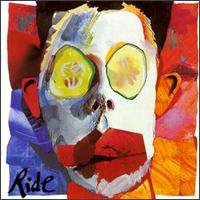
In that gap between the Stone Roses' first album in 1989 and the emergence of Oasis with Definitely Maybe in '94, one of the prime contenders for greatness in British rock were Ride out of Oxford.
They formed in '88, were signed to Alan McGee's famous Creation label the following year and their debut album Nowhere in '90 was universally hailed for its droning sonic energy, visceral punch and memorable songs from the pens of Andy Bell and Mark Gardener.
The album was released in the US through Seymour Stein's label Sire and on subsequent reissues has been acclaimed all over again for its melodies couple with head-down intensity which had them pinned as one of the seminal shoegazer bands.
Their second album Going Blank Again went top 5 in the UK and confirmed their reputation but their third album Carnival of Light was widely panned (“carnival of shite” according to the band) and by Tarantula in '96 they were tearing themselves apart . The album was released after they spilt up and deleted a week later.
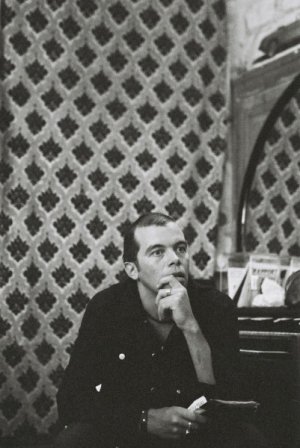 Subsequently Bell ended up in Oasis and
now Liam Gallagher's Beady Eye, and Gardener (right) formed the short-lived
Animalhouse before belatedly embarking on a solo career but mostly
giving his time over to production and mixing at home in Oxford.
Subsequently Bell ended up in Oasis and
now Liam Gallagher's Beady Eye, and Gardener (right) formed the short-lived
Animalhouse before belatedly embarking on a solo career but mostly
giving his time over to production and mixing at home in Oxford.
This is where Elsewhere catches him at 9.30pm as he takes a break from mixing to chat about his fascinating post-Ride career, the fascinating collaborations he has done (Jam and Spoon, Brian Jonestown Massacre, Linda Moody, New York's Dive Index), Production work (co-Pilgrim, Desert Ship) and more particularly his forthcoming solo tour which takes him through Australia and onto dates in New Zealand, a country he says he has longed to visit.
He works in two Oxford studios, Evolution and the other his mixing studio Ox-4-Sound in a lovely cedar-wood room at the back of his garden to which he will return after out conversation.
We laughs about the fact he still buys CDs – “so you are old school?” – and is proud that at the Evolution studio they have the Trident mixing desk from Sawmill Studios in Cornwall on which Stone Roses recorded their classic album and which was also used by Verve, Ride (for Carnival of Light) Oasis and Supergrass. We talk about the studio work for a long time because he loves it.
So is touring the necessary corrective because it gets you out of the house?
Yeah, there's an element of that for sure because you do get cabin fever. You're talking to a restless Sagittarian and we're known to want to wander all the time – and my life and job suited me fine with Ride, just touring around. As a teenager I knew there was a world out there and I wanted to see it.
It's nice to get out and about. Today I feel totally in control of my own destiny in a way that I never was in Ride because you've got Alan McGee telling you one thing, Seymour Stein telling you another, your agent is telling you one thing and your manager another, and the band is telling you something else.
So now it's nice. When I was talking to [Australian-born] Ted Gardner – who manages Brian Jonestown Massacre – because I know [BJM's] Anton Newcombe very well about the idea of doing a few shows in Australia and I thought that ideally this could be a good time. There's 20 year anniversary of Going Blank Again and I hadn't been there for a long time.
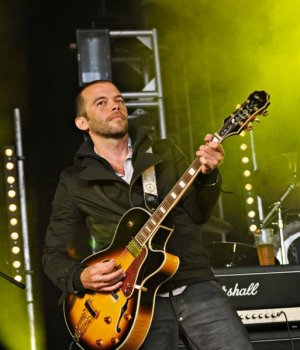 Last time I was there was 2004 and the
reception was so good and I really enjoyed it and that's why I am
going back .
Last time I was there was 2004 and the
reception was so good and I really enjoyed it and that's why I am
going back .
And as soon as it was on-line I was going to Australia I got a few enquiries from New Zealand fans and I said I'd love to come just name a promoter. I've always had a real calling to New Zealand for a number of years.
I love films like The Piano and the Lord of the Rings scenery and everyone I know who has ever been says the place is mind-blowing and the scenery is unbelievable and the people are really chilled.
I heard that for so long and a week after I replied to the e-mails [Auckland singer-songwriter/promoter] Kurt Shanks got in touch and said, 'I can book you two or three shows in New Zealand, are you interested?' I said sure and was supposed to have a couple more days in Australia after those shows but now as soon as I'm finished I'm coming early to New Zealand and am also going to stay on for about five or six days after I've played in Christchurch and think I'll drive to Queenstown. I understand the drive is amazing but that's all I know. I'm really quite excited.
So part of my touring is me doing my own exploring. I've done it quite a lot.
After Ride ended I went to India for six months on my own. Now and again I love going on journeys and like to put myself in situations like that.
Let me talk to you about that specifically because I was going to ask. I know you lived in France after Animalhouse broke up. I am guessing that that time you were looking back on 10 years in bands since you were a late teenager and you must have been thinking, because so much hadn't worked out in the way you might have wanted, 'Is this my life and what I'm supposed to be doing?' Did you have a lot of self-doubt, because it's too late to retrain maybe.
I did, yeah. My mind was scrambled by that point. I'd got used to that existence of being in a successful group that was on the up all the time, then suddenly that bubble burst. Life's fairly anti-climatic when you've got to used to that life of being in band for six or seven years.
When the bubble burst I tried to do the party thing and my house turned into a nightclub for a couple of years and then I tried the Animalhouse thing and it was good working with [Supergrass producer and sometime Ride keyboard player] Sam Williams. I really enjoyed the early part of that process.
But then it became a band and before we knew it we'd signed to BMG and that was a dreadful record label experience, one I never really knew because I'd only had great experiences with Creation and Sire, you couldn't have got more perfect labels for Ride really.
So now it was, 'Oh right, this is what everybody else has to deal with'. It wasn't easy and doesn't work. It was a nightmare.
I'm totally passionate about the music but I was now dealing with the industry at that time when people who had been raking money off it found there wasn't any money anymore and no one knew what was happening. Bands were being dropped.
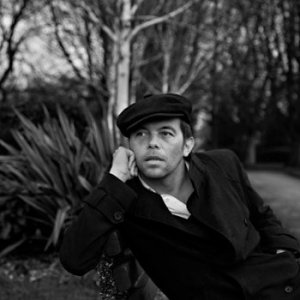 Basically we made the Animalhouse
record which I thought was good but the people who signed us at BMG
were gone and it was different people by the time the record was
ready to go. So it was, 'who are you?' and they were like, 'who are
you?'
Basically we made the Animalhouse
record which I thought was good but the people who signed us at BMG
were gone and it was different people by the time the record was
ready to go. So it was, 'who are you?' and they were like, 'who are
you?'
At that point I had enough. I'd done two and half years of solid time and effort so around then I left. I used to go to France when I had the odd weekend off during the Ride days and had some friends in a remote area who had settled down there and it was sort of medieval wild. I needed to go there for the whole soul food experience because I was utterly drained. So yeah, I was a bit lost really.
So I went down and immersed myself in medieval French nature.
Did you seriously think you were going to have to find something other than music?
In a way. Although I drove down with my speakers and stereo which I set up immediately in this tiny barn and quickly Sundays would end up at the barn with a few friends drinking a bit of wine, smoking a bit of pot and listening to music. So music was always there, but in a completely different zone. So for two years I really needed that because I was running on empty and that experience recharged me, and India as well.
So by the time I'd done those things I got a call from America asking if I wanted to play solo at South x Southwest and I felt energized and good and wanted to get back out there.
That interests me that the Americans were keen on you. What had Ride's profile been that they would come to you? I know you played solo at the Knitting Factory in New York which seems to me a bit off the radar for the average Ride fan.
Yeah, that was way off the radar. At the time Ride did well on the coasts, the first tour sold well but the second was much the same so we didn't really move up a gear. But since we split the band grew and grew and the legacy carried on.
I remember being in France an my management sent me down Magnet magazine which is a massive music magazine across America and we were on the front cover. It was talking about how we influenced so many great american bands like Death Cab for Cutie and all sorts of people were name-checking us. So from that I think the likes of SXSW asked about solo stuff and at that point I was thinking why not.
Because by this time you were a folk singer with an acoustic guitar?
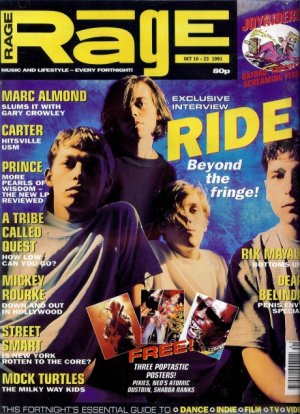 (Laughs) Exactly. Just drop the noise and
distortion. But I feel really at home with that now because even at
the time with Ride I always thought what was important was the song.
(Laughs) Exactly. Just drop the noise and
distortion. But I feel really at home with that now because even at
the time with Ride I always thought what was important was the song.
You can make it noisy or do whatever, but if there's a song behind it you can throw anything at it and it can be good. With Ride there were places to hide with the noise – and behind the fringes which are now long gone – and after all that experience and France there was nothing more exposed than voice and guitar.
If you can do that well, and I believe I can now, it is really powerful and people who know the old songs hear them stripped and intimate. It can really work and I've seen that all over the place.
I love it because I can hear my vocals and what I'm playing. I could never hear anything during the Ride days even though we had monitors. Everything was so loud, which was great fun, but now it's kind of nice, and the production thing – which is about hearing everything – has changed me too. I think my ears now just want to hear the detail more.
Were you nervous about going out solo, because if I take the long view of your career from Ride to the people you work with now, you seem a natural collaborator at heart.
Totally. I felt completely naked. It is the hardest one to pull off but because I've got 20 years plus of music behind me I can pull out a few gems from the Ride catalogue and more recent collaborations, like the one I've just done with Robin Guthrie. So there a few gem and it works really well. I like that I arrive in places and people are like, 'how the hell is this going to work?' but nine times out of 10 it does.
Also it's an easy way to travel and you aren't relying on huge crowds coming. You can play acoustic guitar and sing to five or six people and that works as well. The whole pressure is on for the performer but it's off in terms of having a band in tow and the budgets are high. And even in Ride I was thinking what it would be like when I was in my early 40s. I'd always been inspired by Steven Stills, Neil Young, Crosby and those people who did that so well.
For three of the Australian shows I will have a backing band who have come over from America which is fine as well, but I always feel a bit strange . . . put it this way, I always feel a lot happier with just an acoustic guitar playing those songs Ride because I'm not trying to be Ride in any way because I am just showing the songs naked. I find it really weird playing [Ride songs] with a band that isn't Ride, it's strange.
You are in your own covers band at that point.
(Laughs) Yeah. I do play a few Ride songs with the band and do them in a different way and I'm comfortable with that. If they can put a different take on your songs that's interesting but I don't want to be with a band that wants to be Ride.
But I like to do the new collaborations, instrumentals and things as well as the older things. You've got to take people to new place as well as the old familiar ones.
As a singer-songwriter you are hardly prolific but I guess you are so busy with production and mixing for others that it drags your attention away from your solo career or doing another album.
You're right. It has been a battle over the last three or four years, but the nature of it was the acts were getting more and more interesting and you are learning al the time because every new band is a new challenge.
Only now I am starting to say to people I have half of a great new record so I need to get another half together. So before I think of doing more shows and touring next year, and potentially festivals, I want to have a new great record under my belt. I am road-testing these new ones and they are going down well.
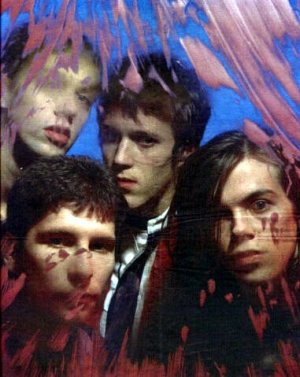 In a way the thing that pays the bills
is the production and if I get enough of that in I can create the
time to have space to make my own record. Ride [right] got me a two-up
two-down house in Oxford with a mortgage but it didn't make me rich.
In a way the thing that pays the bills
is the production and if I get enough of that in I can create the
time to have space to make my own record. Ride [right] got me a two-up
two-down house in Oxford with a mortgage but it didn't make me rich.
I wouldn't want that because I was never motivated by money. I was more motivated to have my own studio, and that's what's happened so I'm very happy.
That's why I'm alright with what has and hasn't happened to me, because at the end of the day I still feel challenged enough to feel really, really hungry.
I know acts who have got really successful but their lives have changed so much with the money. Once you've been that successful you think you have to always be that successful and that's where it all goes wrong.
My music world is always a happy place for me. Outside of that is incredibly challenging but I think I'm better at dealing with it these days. Things always seem to be falling apart, but music does seem to work for me which is what I put most of my time and effort into.
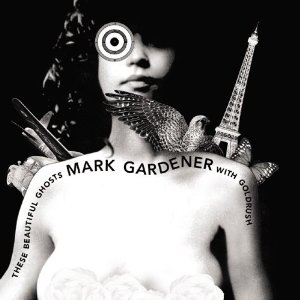 Briefly then, when you come here it's a
mixture of Ride, solo material and these new songs.
Briefly then, when you come here it's a
mixture of Ride, solo material and these new songs.
Definitely. The Robin Guthrie collaboration and the Dive Index collaboration Love Like Ghosts which is a more electronica track which is how it was recorded. But when you take that down to an acoustic track I love it.
I just would never have written a song like that which is why I love collaborating with people, because you think in different ways.
I do like that Dive Index stuff but I also loved Gravity Flow off your solo album [These Beautiful Ghosts, 2005] which almost sounded like the remix already, an acoustic song to which something had happened.
Oh, that one I love and I have a loop station pedal I bring with me, so I can play that one live in New Zealand as well. I'm really glad to you mentioned that one. (Laughs)

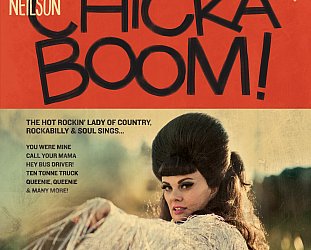
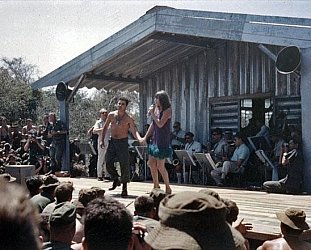
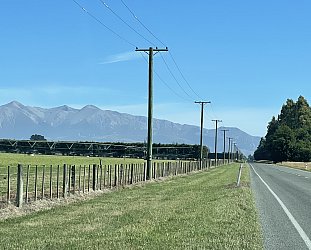

Ant - Jul 31, 2012
Great interview, sounds like he's in a good place these days. I saw him play support to BRMC in New York in 2005, glad he's finally coming down here to play....
Savepost a comment